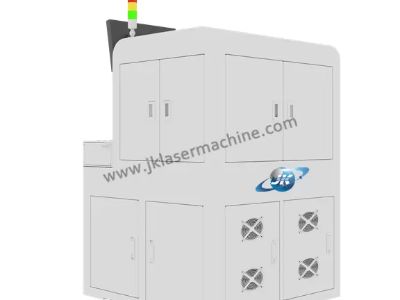What is the difference between Co2 and UV laser?
Co2 and UV Laser Understanding the Differences
Marketing a product or service can be challenging if particularly you may be not really acquainted with the industry's nitty-gritty. With regards to laser technology, things could possibly get complicated, particularly with the various types you can aquire. Two popular laser types are the CO2 and UV lasers, that offer various benefits and applications. We are going to delve deeper into what differentiates CO2 and UV lasers and how they work to direct you towards making the the choice best for your needs.

What Is A Laser?
Lasers are devices that emit a focused beam of with high coherence and monochromaticity. Unlike CO2 Laser Marking Machine regular light, lasers are directional and can carry a considerable amount of, making them perfect for an array of scientific, industrial, and medical applications.
Co2 laser
A CO2 laser, additionally called a carbon dioxide laser, is just a gas laser that uses skin tightening and gas as a medium for producing a laser beam. It operates for a single frequency has a wavelength of roughly 10.6 micrometres. CO2 lasers can be used in commercial settings for high-powered cutting, welding, and engraving.
Advantages of CO2 Laser
CO2 lasers have numerous advantages, such as
1. High Precision CO2 lasers produce a very concentrated beam of that means these are typically perfect for precision industrial applications and procedures being medical.
2. Economical Compared to, CO2 lasers that are other lasers typically more affordable and require less upkeep.
3. Powerful CO2 lasers are understood for their high power production making all of them with the capability of cutting right through dense materials.
4. Versatile CO2 lasers could possibly be used for a wide assortment of, including plastics, wood, cup, ceramic, and more.
UV laser
UV lasers operate in the ultraviolet wavelength range, typically between 200 and 400 nanometres. The CO2 Laser Engraving Machines truly are commonly used inside the semiconductor industry for manufacturing microchips, fiber-optic cables, and other high-tech materials. UV laser technology may also be used in dental, medical, and cosmetic procedures.
Advantages of UV Laser
UV lasers offer several benefits, including
1. High Precision UV lasers can handle producing cuts that are incredibly precise making them popular in applications that are looking highly accurate measurements.
2. Faster Processing UV lasers can process materials at a faster rate than traditional CO2 lasers, making them ideal for production settings.
3. Less thermal results operate at a shorter wavelength, they produce fewer results that are thermal the product being prepared, resulting in less damage.
4. Flexibility UV lasers can be used on a selection of materials, including metals, ceramics, plastics, and more.
Difference Between CO2 and UV laser
1. Wavelength the and UV lasers difference that are main the wavelength. CO2 lasers have an extended wavelength of micrometres, while UV lasers have shorter wavelength between 200. 400 nanometres.
2. Power Capacity CO2 lasers are known with regards to their high power output allowing them to handle thick materials. In comparison, UV lasers have lower power output but could process materials at a faster rate.
3. Application CO2 lasers excel in industrial cutting, welding, and applications that are engraving while UV lasers can be used into the semiconductor, medical, and cosmetic industries.
How to Use CO2 and UV Laser
Like every single other and UV lasers tool that are commercial safety precautions, guidelines, and training before use. The procedure is usually automated, however it requires ability with computer-aided design (CAD) software and laser machineries. Its recommended to carry a danger thorough away before using a laser and making certain either a reliable person carries out upkeep or a certified person provides service support.
Quality and Service
When investing in a Co2 laser marking or UV laser, it is essential to focus on service and quality. As with every technical apparatus it's important to opt for reputable and trustworthy brands with reliable customer services. A reputable dealer good customer service provides technical assistance, maintenance support, and spare parts for replacements. Deciding on such brands helps to ensure that the product's quality is retained, and this product lasts longer.
Applications
CO2 and UV lasers have a wide assortment of, including
1. Industrial Cutting and Welding CO2 lasers are used in cutting and welding materials that are thick such as metals and plastics, in commercial settings.
2. Medical Procedures UV lasers are used in dental, cosmetic, and surgical procedures, such as laser hair removal, tattoo removal, and cataract removal.
3. Microchip Manufacturing UV lasers are used in the semiconductor industry to manufacture microchips and other high-tech materials.
Comments
Post a Comment